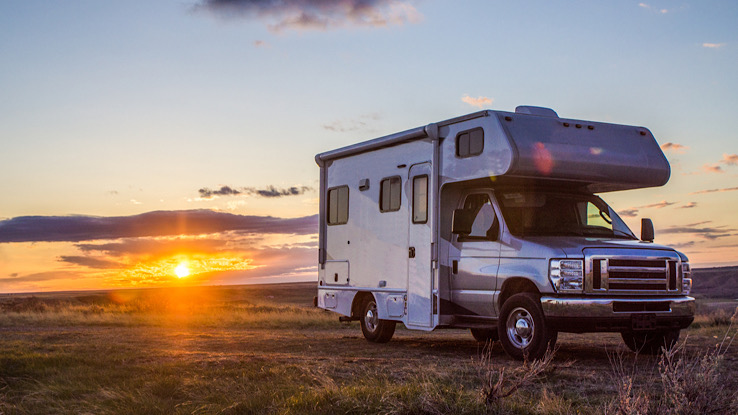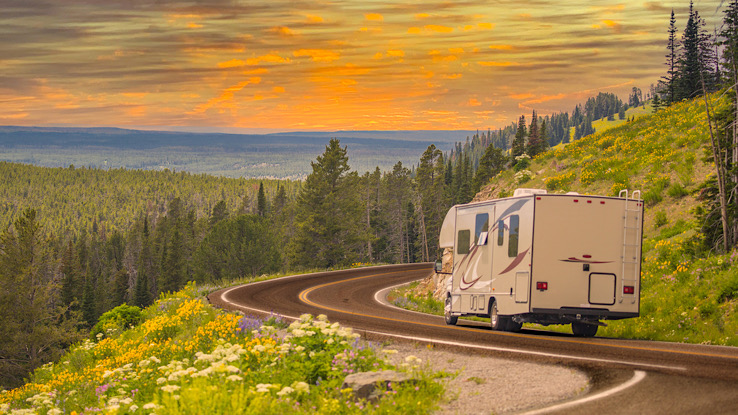
People rent RVs for one-way trips all the time for various reasons. For example, maybe you want to travel by RV somewhere but not worry about driving all the way back. On the other hand, you might be relocating to a new home and have no reason to drive back to where you started. Or perhaps you only have time for a one-way drive and then have to get back quickly. Whatever the reason, many RV companies offer the convenient choice of a one-way rental. The one-way rental option allows you to experience the thrill of an RV trip on your terms without having to return the same way you got there. Maybe it will enable you to try out the RV lifestyle to see if it’s for you! Learn tips to book one way RV rentals.
Tips To Finding a One Way RV Rentals
Here are some tips to consider when booking one-way RV rentals.
Budget
Check with the rental company because sometimes they restrict your travel distance. For example, many cap their allowed distance at 1,000 miles. The cost can be between two and three dollars per mile plus a drop charge of $50 to $200. Costs may also depend on where you pick up the RV and where you will drop it off. Don’t forget to factor in gas costs and insurance when planning your budget for one way RV rentals.
Book In Advance
Book plenty of months in advance, and you may find some savings along the way. This is especially true if your dates are flexible. Search online for less expensive options depending on the time of year and other special discounts. Planning a trip also gives you more time to make sure you’ve covered every possible scenario. Then when your journey begins, you can enjoy the experience more in your one way RV rental.
Research Different Types of RVs
You’ve got a lot to choose from. The RVs available to rent one way start from small 15-foot trailers to more substantial motorhomes more than 45 feet in length. Small, large, or somewhere in between – knowing your specific needs will help ensure this trip is as fun as you want it to be.
Keep this in mind when you’re choosing – you want to be able to maneuver and drive this RV safely. Where do you plan to take it? Check the roads along your way beforehand to ensure you’ll be able to get where you want to go. Do you have good parking options for overnight stays and short visits alike? What about any emergency repairs? Check to see that there are enough repair shops along the way to take care of any trouble that comes up. Don’t forget to read reviews and compare costs.
Consider Your Fellow Travelers
Are you traveling alone or going with others? Knowing specifically the number of friends and family members with whom you’ll be sharing the road is essential. For starters, it helps give you an idea about what size of RV you’ll be renting. These travel buddies play an important role because you want to know their needs or wants before the trip. For example, are they older people or kids who need specific amenities? You may consider asking for opinions because these people will share much more than just the road with you. They’ll be sharing the same kitchen, bathroom, bedroom, and shower for as long as the trip takes. So it’s nice when everyone is comfortable.
Distance & Driving Capabilities
Prepare yourself for the task at hand. If you’re new to RV driving, you’ll want to take some classes if you plan on driving hundreds of miles in a house on wheels. Or perhaps a shorter drive is best so you can get used to the experience first. Day trips or weekend drives are great ways to get started! Again, remember that most RV rental plans include a limit on miles. Avoid extra miles and extra charges by planning your trip carefully.
Length of One Way RV Rentals
When planning your trip and how long it will take, give yourself some wiggle room. RVs run much slower than cars and trucks. Unless you are an experienced RV driver, your trip will likely take longer than expected. Give yourself a few days longer than you think so you don’t have to pay any late fees at the end of your trip. This will also affect your budget, as you may need more time.
Insurance for One Way RV Rentals
Check your car insurance or credit cards. However, the majority don’t normally include insurance on RV rentals. Most of the time, you can add it to your rental agreement. If that’s not possible, you can find a third party and purchase insurance through them. This is another good reason to plan way ahead. If you don’t feel rushed at the last minute, you can check out the pros and cons of insurance coverage, including deductibles and premiums. Be sure to get coverage that includes injuries as well as property damage.
How To Get To Your Next Destination

When your trip is over, the best part is that you can drop off the unit without any added chores or responsibilities. You get to go off on your next fun trip without any commitments. You do not have to worry about how the company gets the RV back to its original location. You just follow the rental agreement and fulfill everything according to the plan.
But, once you’ve returned the RV unit, you still have to get home. If you’re moving into a new house in that area, you can easily get a ride through apps, taxis, or loved ones. However, if you have some distance between you and home, some inexpensive ways to get back include one-way:
- Flights
- Rental Cars
- Train rides
- Ride Sharing
Or you can always rent another one RV rental!






